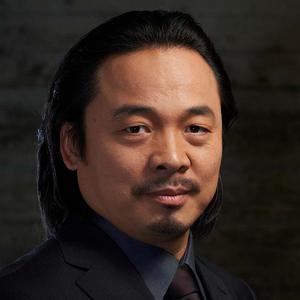
Li

The Chinese bass Liang Li has become a most sought-after singer for both opera and concert with performances at all important international companies and festivals. He sings all main roles of his Fach, which includes German as well as Italian and French repertoire. He has got a regular collaboration with conductors like Mariss Jansons, Zubin Mehta, Sir Simon Rattle, Myung-Whun Chung, Donald Runnicles, Tomás Netopil, Silvain Cambreling, Jonathan Nott, Manfred Honeck, just to name a few.
The season 2016/17 started with a concert of Beethoven’s Ninth Symphony under the baton of Manfred Honeck with the Danish Radio in Copenhagen, followed by his huge success as Fiesco in a new production of Simone Boccanegra (conductor Paolo Carignani; director David Hermann) at the Vlaamse Opera Antwerp. It includes his return to the Deutsche Oper am Rhein as Filippo in Don Carlo and King Marke in Tristan und Isolde at the National Center of the Performing Arts in Beijing (conductor Myung Whun Chung; director Marius Trelinski), as Zaccharia in Nabucco performances at the Deutsche Oper Berlin as well as at the Staatstheater Stuttgart and various performances with Zubin Mehta at the Milano Dome (Beethoven’s Ninth Symphony) and in Tel Aviv (Timur in Turandot concert performance).
Liang Li is a regular guest at the Festival Baden-Baden with Die Walküre (Hunding; conductor Jonathan Nott), a production of Manon Lescaut (Geronte de Ravoir; conductor Sir Simon Rattle, director Richard Eyre); at the Opéra de Paris with Il Trovatore (Ferrando; conductor Daniele Rustioni, director Alex Ollé) and Don Giovanni (Commendatore; conductor Alain Altinoglu); at the Deutsche Oper Berlin with Nabucco (Zaccharia), Parsifal (Gurnemanz) and Tristan and Isolde (King Marke); at the Semperoper Dresden with Macbeth (Banco) and La juive (Cardinal de Brogni). He performed Daland (Der Fliegende Holländer) in Caen and Luxemburg (conductor Francois-Xavier Roth), Zaccharia alongside Placido Domingo (Nabucco) at the Opera Festival Beijing, Ferrando (Il Trovatore) and King Marke (Tristan and Isolde) at the Palau de les Arts (under Zubin Mehta).
In March 2018 he made his Bolshoi Theatre debut as Philip II in Don Carlo.
With his distinguished concert-repertoire, Liang Li also performs internationally on all important concert-stages, like with Stabat Mater by Dvorak with the Bavarian Symphony Orchestra under the baton of Mariss Jansons in Munich and Lucerne, as Arkel (Pélleas et Mélisande) at the Wiener Festwochen and at the Edinburgh Festival, with Stabat Mater by Rossini both at the Palau de les Arts in Valencia (under Nicola Luisotti) and at the Palace of the Arts in Budapest (under Carlo Montanaro) and Mahler’s Eight Symphony with the Tokyo Symphony Orchestra at Kawasaki (under Jonathan Nott), with Requiem by Mozart and the Pittsburgh Symphony Orchestra (under Manrfed Honeck) at Carnegie Hall in New York, at Vienna Musikverein as well as in Pittsburgh, with Requiem by Verdi at the Philharmonie Essen (under Tomás Netopil) and at the Palau de les Arts (under Carlo Rizzi), with Szenen aus Goethes Faust by Schumann (Pater Profundus, Böser Geist) under the baton of Sebastian Weigle at the Frankfurt Museumskonzerte, with Mahler’s Eight Symphony (under Shao-chia Lü) in Taiwan, with Stabat Mater by Dovrak at the Mozarteum Salzburg, just to name a few.
Liang Li was born in China and studied voice in Tianjin and in Peking. He won numerous prizes at International Voice Competitions, for example, the International ARD Music Competition in Munich, „Neue Stimmen" of the Bertelsmann Stiftung and the International Opera-Competition in Shizuoka in Japan.
For his outstanding credits for the Staatsoper Stuttgart where Liang Li has been a member since 2006 and where he sings all important roles of his Fach, he has been honoured with the title Kammersänger of the Staatsoper Stuttgart in 2016.